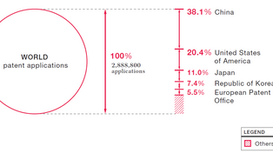What is copyright?
- Admin

- May 10, 2023
- 1 min read

In essence, copyright is a legal protection for the literary or artistic creations of authors, commonly referred to as "works". It grants authors and related rights holders exclusive rights to their works, such as a novelist's copyright to their novel, a painter's copyright to their painting, and a photographer's copyright to their photo. However, copyright extends beyond the narrow definition of authors' rights to their work and includes the rights enjoyed by performers, audiovisual producers, broadcasters, and publishers, commonly referred to as "related rights". Copyright protection includes every type of production in the literary, scientific, and artistic domains as per the Berne Convention, such as books, music compositions, cinematographic works, paintings, sculptures, photographs, maps, plans, and sketches. Newer copyright treaties have added additional types of works to this list, such as computer software and databases. While most categories of works are protected based on international copyright treaties, protections for some categories of works such as works of applied art are optional. Copyright protects both property rights and personal rights, with the latter being commonly referred to as moral rights. Historically, there were two distinct copyright law systems in the world, with the UK and the US focusing on the protection of authors' property rights and France and Germany focusing on the protection of authors' personal rights. However, as major countries of both systems are members of the Berne Convention and continue to learn from each other, the difference between the two systems is gradually receding.






































Comments